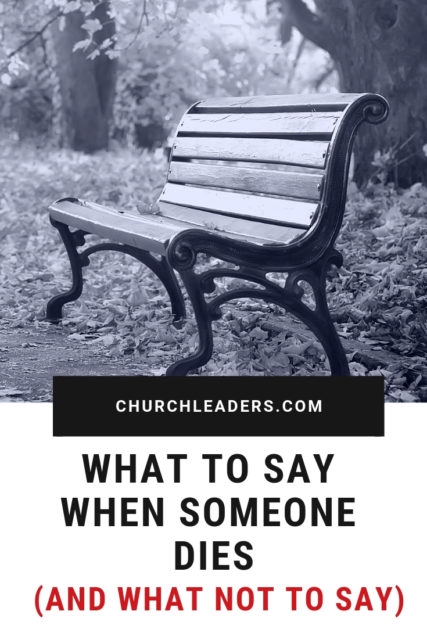After the Funeral: What to Say When Someone Dies
Some of the most meaningful words came weeks after the funeral. Lots of people are thinking about you in the first days. Those who are truly grieving with/for you will continue to show sympathy/empathy for some time.
Stories about Dad: I already know how special he was to me. It was uplifting to hear about the significance of my father to others. Those stories carried significance.
This is a hard time for all of us—hardest of all for the family, of course, but it’s difficult for friends who come by the funeral home or church and often stand in line. Earlier this week, friends told me they stood in line over two hours at the church for the opportunity to speak to the grieving widower for 30 seconds and to give him a hug. My hunch is the grieving family cares far more about the fact that friends showed up at all than the specifics of what they said.
Many people struggle with what to say to the grief-stricken. For instance, in two days, I will be doing the funeral of the mother of a long-time friend who was almost 102 when she died. Friends showing up may wonder what to say to the family. Do they grieve in the same way as my friends early this week, where the wife was in her 70s and died somewhat unexpectedly? My answer is simply, grief is grief. A longer life just gives family and friends longer to love them.
In all cases, “I’m so sorry” accompanied with a hug is the gold standard.
What Not to Say When Someone Dies: Avoiding Harmful Phrases
“God must really think you are strong because we know God won’t give you more than you can handle.”
“Your dad is in a better place.” (While I believe that my father is in a better place, this is along the lines of “He’s not suffering anymore.” It’s typically applied as if heaven is the default for anyone who wasn’t too bad.)
“Heaven has another angel.” (This is not biblical theology.)
“He’s looking at you right now.” (How could heaven be free of tears and pain if they were watching us?)
“He’s still with us, watching over us.”
Without much more than a “Sorry for your loss,” a lengthy monologue on his/her own experience with loss. As selfish as it sounds, I’m grieving now and I don’t want to hear your story.
“I know how you feel.” (Grief is unique to each individual.)
“God has a reason for everything.” (Although true in a broad sense, this can feel dismissive of current pain.)
“You are in my thoughts.” (I never quite understood why this is supposed to comfort.) (Although, this is often shorthand for “You’re in my thoughts and prayers.” So, I wouldn’t be too rough on someone who says this.)
Ultimately, as Christians, we are called to “weep with those who weep” (Romans 12:15) and offer comfort that reflects the love, hope, and peace of Christ. Simple words, genuine care, and prayerful support can often speak louder than even the most well-crafted phrases.



